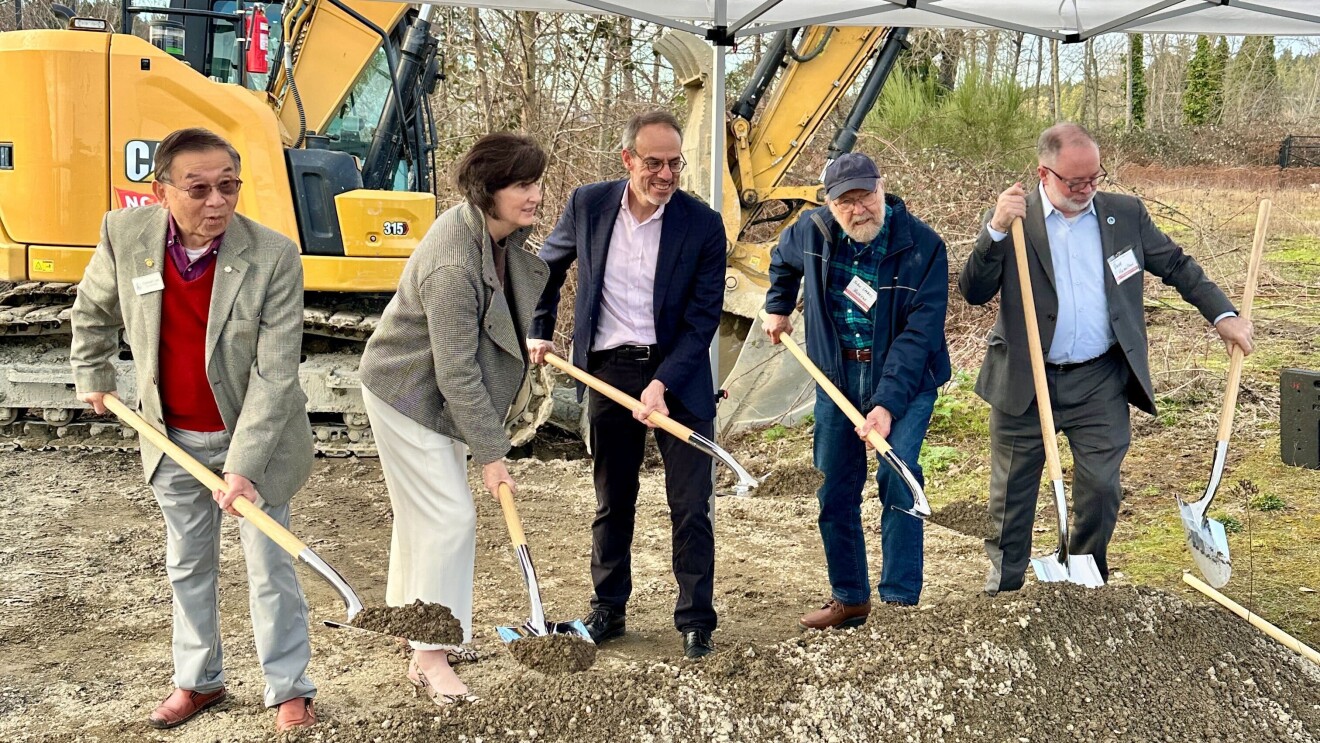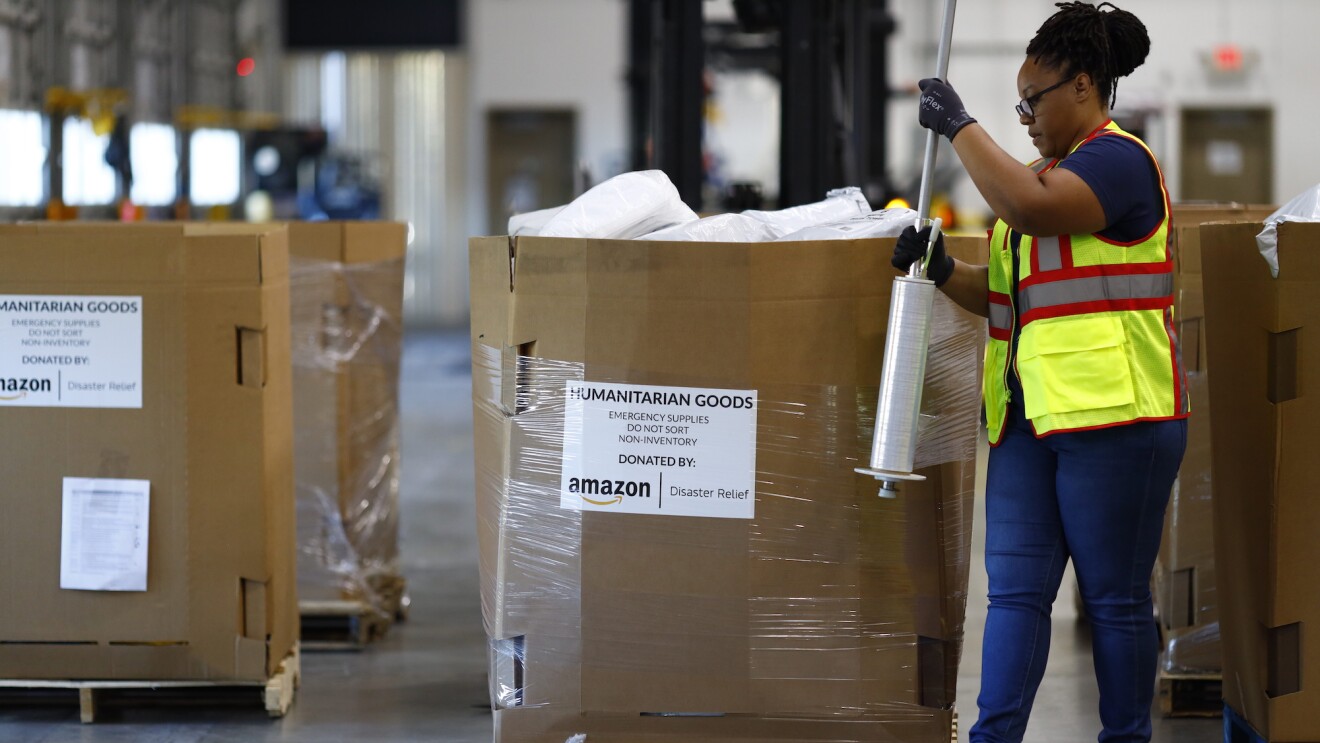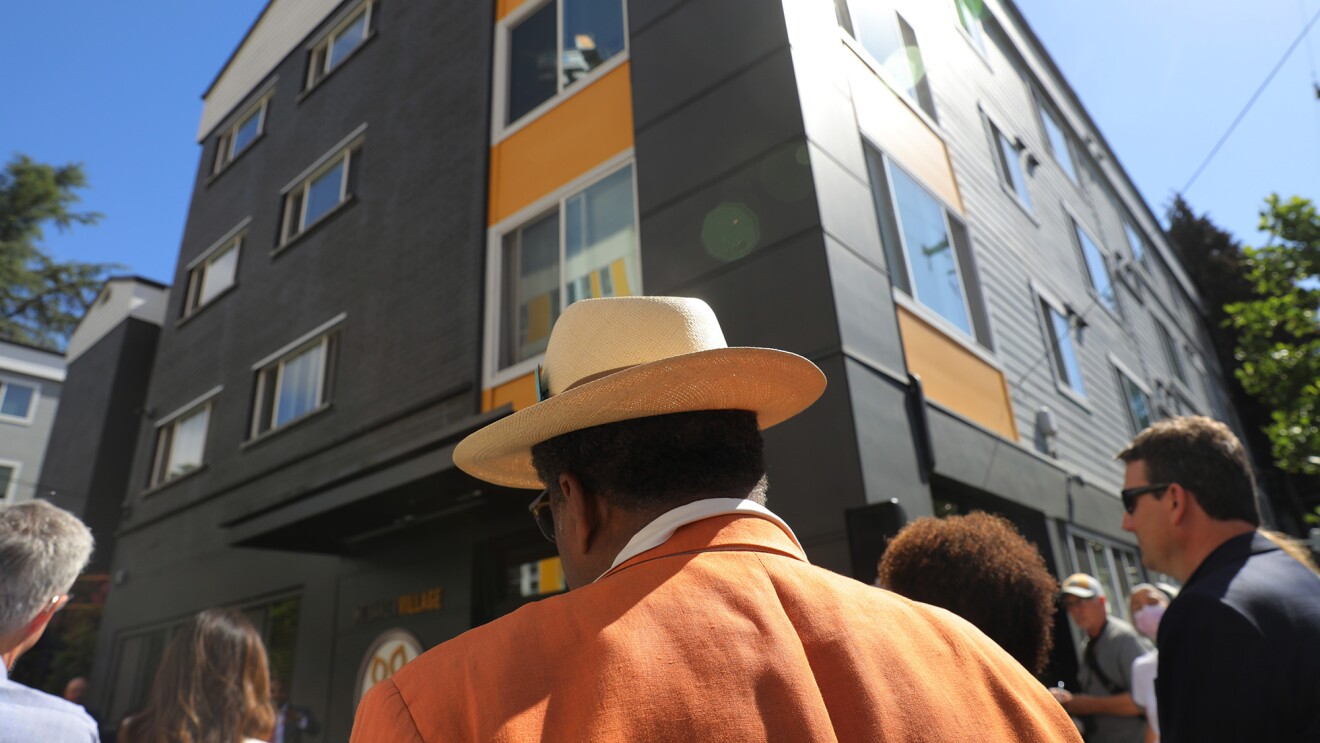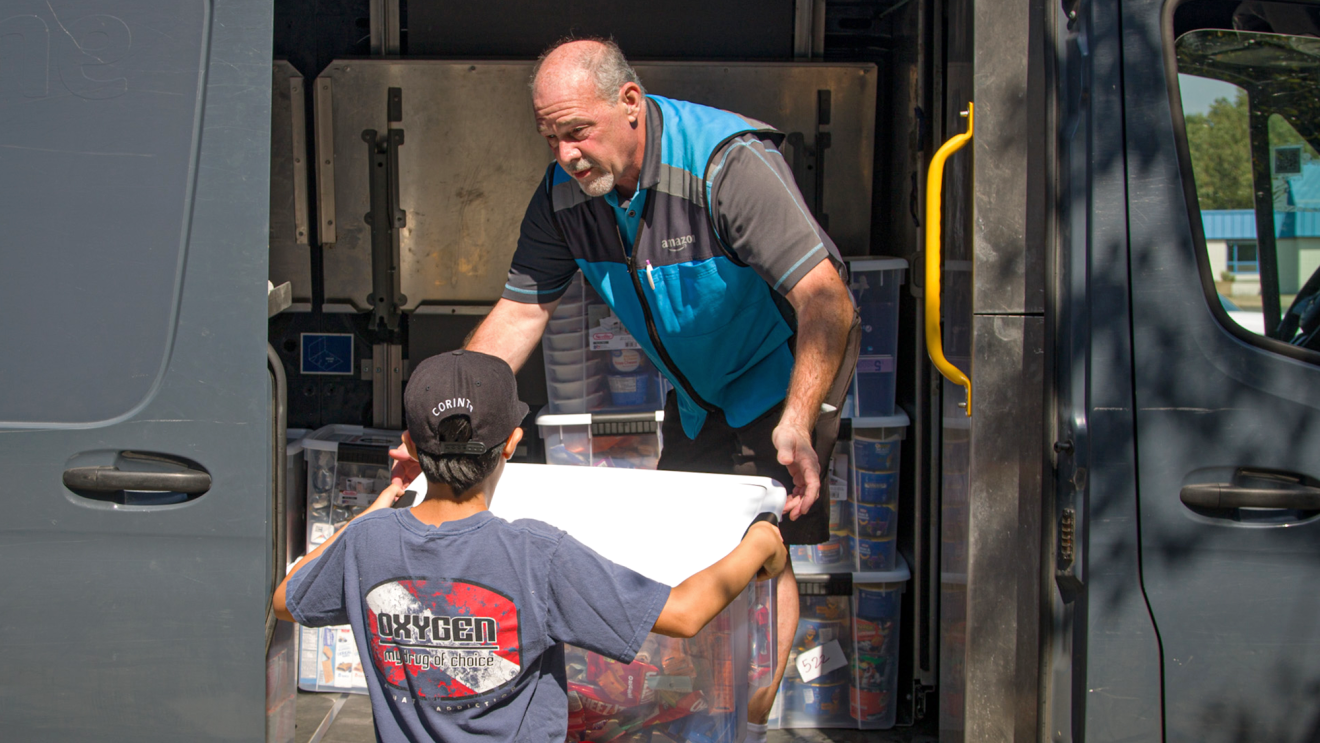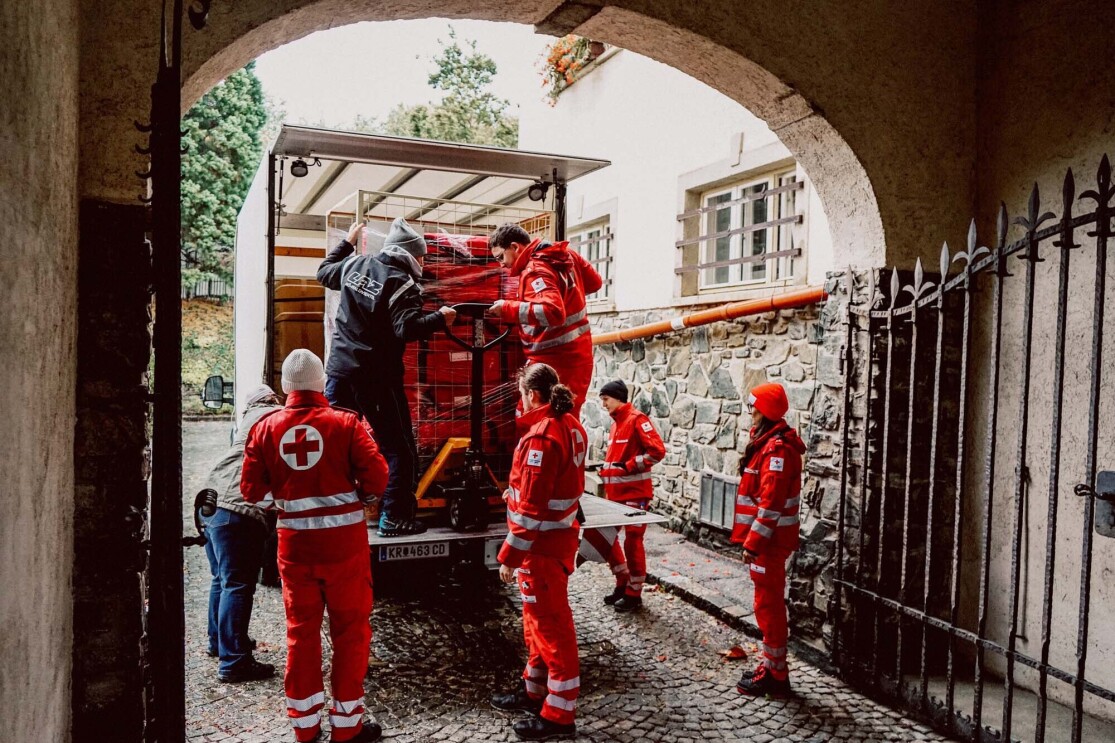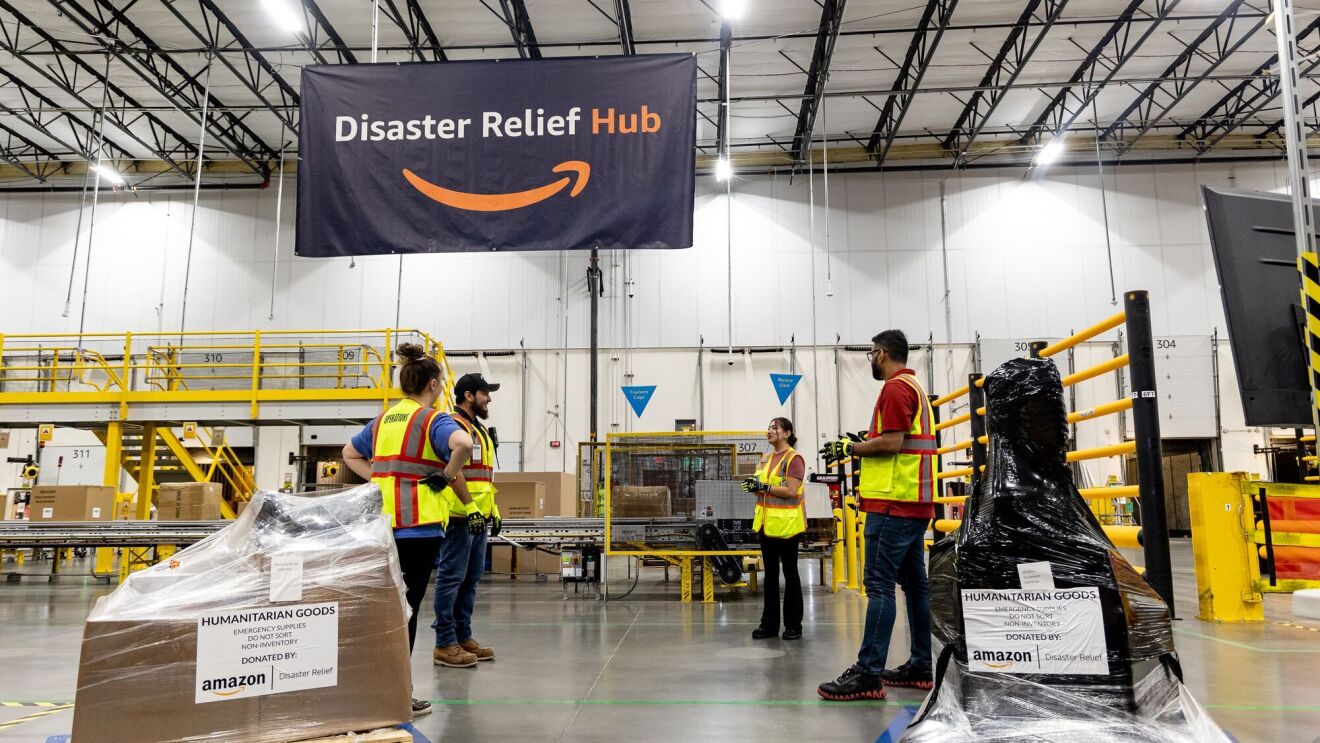Not long ago, a group of students graduated from a very special culinary program in Seattle—an advanced foodservice apprenticeship that aims to help restaurant workers learn specialized skills to help maximize their wages and job opportunities.
Darrell John, 42, was one of those graduates.
But this wasn’t the first time he’d been through a training program offered by the organization, FareStart. John took his first cooking class in 2014, right after he was released from prison.
Partnering to help Seattle, one person at a time
The challenges of homelessness, poverty, and joblessness often seem overwhelmingly difficult to overcome. But FareStart, an organization that launched 25 years ago, works to break the cycle in a very practical way, by offering job training and work experience through its restaurants, cafés, and catering. By investing in people and building community, FareStart transforms homelessness, hunger, and poverty into human potential. And they’ve recently been able to dramatically expand their efforts.
The challenges of homelessness, poverty, and joblessness often seem overwhelmingly difficult to overcome. But FareStart, an organization that launched 25 years ago, works to break the cycle in a very practical way, by offering job training and work experience through its restaurants, cafés, and catering. By investing in people and building community, FareStart transforms homelessness, hunger, and poverty into human potential. And they’ve recently been able to dramatically expand their efforts.
Last year, Amazon donated and furnished more than 25,000 square feet of retail space to help launch five new FareStart eateries on our South Lake Union campus and provided a $1 million matching grant to help spark even more local engagement. This contribution will enable the organization to double in size and reach, helping people who’ve had trouble finding and keeping work, including those who’ve been in jail or are in recovery.
The relationship between Amazon and FareStart is a natural one, according to Alice Shobe, Director of Community Engagement at Amazon. “We look for unique and impactful ways to give back to the communities where our employees live and work.
FareStart welcomed us into South Lake Union, and many of our employees have supported them for years by eating at the restaurant, volunteering, and donating. We were excited when an opportunity arose to work with them more closely at scale. In the next few years, they will triple the number of people they can support every year.”
The business of community
A long time ago, Amazon made a very conscious decision to stay and grow in the heart of downtown Seattle, explained Shobe. “We’ve invested over $4 billion in the city, and we work to make sure that growth is not only good for Amazon employees, but the city as a whole.”
There are eight FareStart eateries in Seattle, and the new ones in South Lake Union include a coffee shop named Rise by FareStart and three fast casual outlets collectively called Community Table by FareStart. The fifth option, Maslow’s by FareStart, where John worked, is a full-service restaurant that strives to use local and sustainable ingredients as much as possible. All of these restaurants are frequented by locals, including Amazon employees.
We are all about helping people transform their life into the one they want it to be, and getting a job is a piece of them doing that.
Megan Karch - former CEO of FareStart
“In the first 25 days FareStart’s new eateries were open, over 1,800 employees visited one of the eateries and learned more about FareStart’s menus and mission,” said Shobe. “And the momentum has continued among customers and supporters. We have teams that go to happy hour at Maslow’s, bring potential candidates to lunch at Community Table, and employees that grab early morning coffee at Rise. We also have employees volunteering on guest chef nights, delivering meals, and volunteering in FareStart’s computer lab.”
A hunger to transform lives
Although some people may think of FareStart as simply a restaurant group with a mission, the organization’s former CEO Megan Karch explained why it is so much more. “FareStart is really a life transformation program, and we happen to use food as a tool to do that. We are all about helping people transform their life into the one they want it to be, and getting a job is a piece of them doing that.”
The training programs at FareStart include programs to help homeless or at-risk youth, including barista and culinary programs for 16-24-year-olds, as well as a 16-week adult culinary program, and the new foodservice apprenticeship program from which John recently graduated.
But, in addition to work training, the organization provides real-world assistance that helps people who’ve been down on their luck move forward to a better path. All students in the program are assigned a case manager who helps them figure out a work plan and areas of support they may require. Housing is often a big need, and FareStart has contracts for units all over the city, where they can help get people settled, explained Karch. Additional services are offered as needed, including legal, mental health, and addiction recovery programs.
As for John, he was most excited about the work training component of the program. He’d always wanted to be a chef, and in 2014—three weeks after he got out of prison—he began learning cooking skills that eventually led him to the restaurant where he currently works, Altstadt Bierhalle & Brathaus. With support from the restaurant’s chef—whom he’d first met at FareStart years before—he joined the advanced culinary training program. Upon graduation, John was promoted to sous chef at Altstadt. Eventually, he hopes to leverage his talents into working with new kinds of food.
“I particularly love Korean cuisine,” he said. Acknowledging the impact FareStart has had, John added, “Without this support, I don't know where I'd be today."
A recipe for confidence on Amazon’s campus
In the past year, FareStart trained more than 500 people and created more than 90,000 meals—including food that went to shelters and programs for children. But, as Karch said, for FareStart students, you can’t underestimate how meaningful it’s been to work on the Amazon campus. “They’re proud to be there, and they're proud to be a part of this,” she said. “They feel fortunate. They just stand up straighter. And, most importantly, they begin thinking, ‘I deserve this.’”
In the past year, FareStart trained more than 500 people and created more than 90,000 meals—including food that went to shelters and programs for children. But, as Karch said, for FareStart students, you can’t underestimate how meaningful it’s been to work on the Amazon campus. “They’re proud to be there, and they're proud to be a part of this,” she said. “They feel fortunate. They just stand up straighter. And, most importantly, they begin thinking, ‘I deserve this.’”


